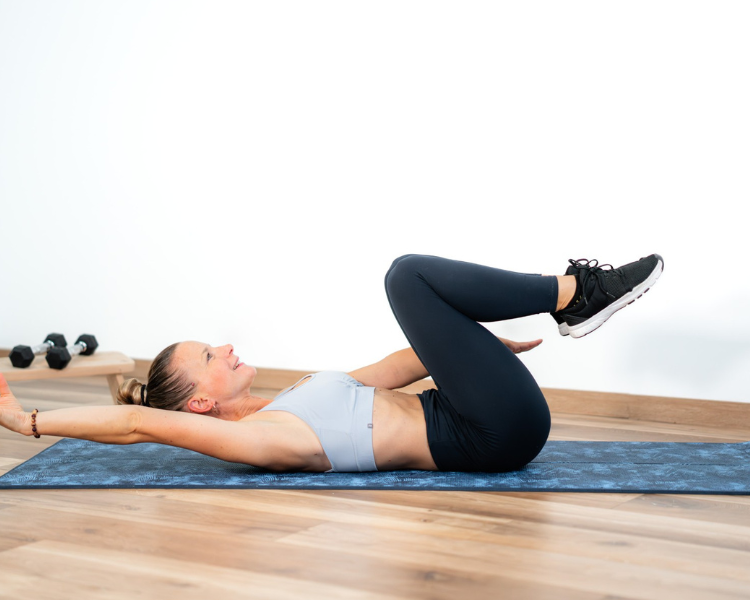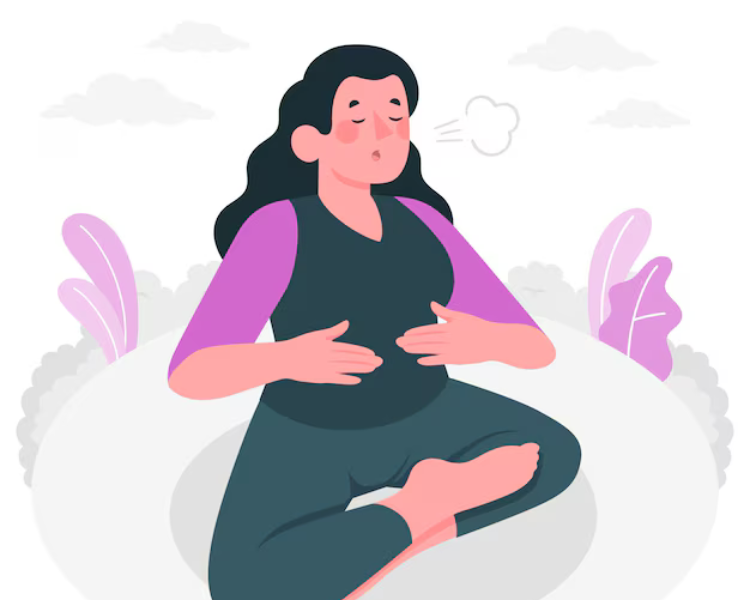Acne , this scourge that makes our skin rebellious, sometimes makes us bitterly regret adolescence. But did you know that acne is not only reserved for teenagers ?
Far from it, since a recent study shows that more than 50% of adult women are or will be affected at some point in their lives by this skin condition.

So, what are the different factors that can cause acne in adulthood ? How do you know if the cause is hormonal and what natural solutions are available to remedy it? We explain it all to you.
What causes acne?
Acne is a skin condition that manifests itself as pimples, skin blemishes or cysts , often inflammatory , which appear spontaneously on the face or body.
Different possible causes of acne
There are several causes of acne and there are more and more solutions available to treat it. But we have all noticed that the miracle solution for our best friend is not always so effective on our own skin.
And that's normal! Because if we don't correctly target the cause that concerns us, it will be difficult to find the solution adapted to our needs.
So today, we're taking stock with you of the different causes of acne and the solutions that exist to effectively combat these undesirables, in a targeted, adapted and natural way.
Food
First of all, our diet can play a major role in the appearance of acne. Foods that are too fatty or sugary can disrupt our hormonal balance , maintain an inflammatory environment and increase sebum production, thus causing those pimples and imperfections that we could do without.
So, of course, it is always important to review our consumption of fries and sweets. But if ultra-processed fat is indeed a major enemy for our health and our skin, we must not forget to bring good fat to our body. Because without certain essential fatty acids, our body is unable to manufacture our precious hormones which are produced directly from good cholesterol.

This is therefore a balancing act to be implemented to reduce very inflammatory bad fats (processed foods, fried foods, etc.) while maintaining a sufficient intake of good fatty acids, which are anti-inflammatory and essential for our hormones (uncooked vegetable oils rich in omega 3, oily fish, oilseeds, etc.).
Stress
It is perhaps the most present factor in our current lives. We even tend to often trivialize it... yet stress is at the heart of many disorders.
We are all well aware that our modern lives are filled with stress, between work, family, and countless tasks to accomplish. Well, this stress can cause hormonal imbalances that result in... you guessed it, pimples, skin blemishes, and sometimes even acne !
So you're still hesitating about your resolutions for this new year? Look no further, we've found something for you: do yourself some good!
Because to reduce this stress, there is nothing better than taking time for yourself, listening to music you like, sharing quality time with your loved ones or doing breathing or meditation exercises.
And it's not just to please you, it's for your health!
Hormones
Finally, in adult women , acne is often closely linked to our hormones . This is what is generally called: hormonal acne .
As the name suggests, hormonal acne is closely linked to our hormones. Because our hormones, which are responsible for many processes in our body , can also influence our skin in different ways.
Hormonal fluctuations , such as those occurring during menstruation or menopause, can cause changes in oil production and skin flaking , which can then lead to blemishes , breakouts, or sometimes even cysts.
But don't worry, there are ways to prevent and treat these unwanted breakouts! And the first thing you need to know to find the solution that's right for you is that, contrary to popular belief , there's not just one type of hormonal acne...but two very different types of hormonal acne.
And once you understand what type of hormonal acne you have, you'll see that it will be much easier to find the solution that's right for you.
Because understanding your body means giving yourself the means to act.

The 2 types of hormonal acne
Have you ever found yourself battling persistent pimples, even when you think you've tried everything? Pimples that come back around the same time every month? Or pimples that constantly appear on your jawline?
What if it was hormonal?
The good news is that when we pay attention, our symptoms give us a lot of information about the hormonal imbalances involved.
And today, we're helping you decode them.
Cyclic acne that comes back every month before your period?
Every month it's the same thing, you may be careful about what you eat, clean your skin with a gentle exfoliant and use the cream recommended by your pharmacist for its anti-acne properties...
Nothing works, your acne systematically gets worse about a week before your period arrives.
You are not alone. Nearly 3 out of 5 women are affected by what is called premenstrual syndrome, which often results in the appearance or worsening of your acne. This is the first type of hormonal acne and is easily recognizable thanks to these two characteristics:
- Pimples or blemishes are located on the face, without a specific area (forehead, nose, cheek, etc.) and do not always return to the same places from one month to the next.
- This acne comes back every month around the same time in the menstrual cycle: just before your period starts.

Progesterone deficiency
Hormonal acne related to PMS is a sign of progesterone deficiency. Progesterone is the hormone that our ovaries produce every month right after ovulation and until the start of menstruation.
It is the menstrual comfort hormone. But when we do not produce enough of it, it can result in different symptoms that will all have this common characteristic of manifesting themselves each month, just before the arrival of the period.
Persistent acne, located on the jaw and back?
Have you tried everything? Even the most aggressive treatments for your skin. But nothing works, each time you stop your spots come back painfully and each scar reminds you of this difficulty of accepting living as an adult with skin that painfully reminds us of our teenage years.
Again, you are far from alone in this situation. More than 15% of women are affected by this hormonal acne called androgenic .
Its characteristics?
- Pimples, blemishes and sometimes even more or less inflammatory cysts with a very specific location: on the jaw and chin, shoulders and back.
- This acne has no particular link with the menstrual cycle and is present permanently.

Excess testosterone
This type of hormonal acne is a sign of an excess of certain hormones called androgens, particularly testosterone.
In women, when we produce a little too much testosterone, this can result in various symptoms: excess body hair, hair loss on the top of the head and this famous type of hormonal acne with its characteristic location at the jaw, shoulders and back.
Our tips for avoiding hormonal acne
Write down your symptoms in a diary
To effectively manage hormonal acne that occurs during PMS, it is important to understand your menstrual cycle and pay attention to the changes that occur in your body. You can keep a journal of your cycle and acne occurrence to better understand the connection between the two. With this, you can anticipate and take preventative measures to minimize the impact of hormonal acne.
Adopt a suitable skin care routine
A skin care routine tailored to your menstrual cycle can also be beneficial. For example, you can increase the use of a gentle exfoliant during the premenstrual period to prevent oil buildup in your pores.
Additionally, you can use essential and vegetable oils to regulate sebum production and reduce inflammation.
- For pimples and blemishes: apply 1 drop of Tea-Tree essential oil directly to the blemishes
- For oily skin and excess sebum: dilute 1 drop of geranium essential oil in Nigella vegetable oil to regulate sebum production.
The power of herbal medicine and micronutrition
Zinc for your skin
Thanks to its healing, anti-inflammatory and antibacterial properties, zinc is the mineral recognized for the well-being of the skin. But be careful to favor forms of zinc that are well assimilated and that provide you with this precious mineral in sufficient quantity.
It is recommended to take zinc in the form of bisglycinate for optimal assimilation and the recommended daily dose is 15 mg.
Rebalancing hormones to prevent recurrences
Finally, you can directly address the cause of hormonal acne by rebalancing your hormones.
Does your acne come back every month around period time?
Lady's Mantle and Yarrow, thanks to their respective actions to boost progesterone production, will help you to sustainably and effectively prevent the appearance of this unwanted cyclical acne.
To make your life easier, we have combined in our OCYCLE formula , Achemilla and Yarrow with zinc (in the form of 15 mg bisglycinate) to help you regain healthy and radiant skin in a lasting way.

Is your acne located on your jaw, shoulders and back?
Hops and Alfalfa, thanks to their anti-androgenic and particularly anti-testosterone actions, help you to regulate this hormonal acne of androgenic origin in depth.
To make your life easier, we have combined Hops and Alfalfa with zinc (in the form of 15 mg bisglycinate) in our OPEKA formula to help you regain healthy, radiant skin in a lasting way.

Please note, however, that if you have a history of hormone-dependent cancer, this formula is not suitable for you.
In cases where hormonal acne persists despite your efforts, it is wise to consult a dermatologist. A healthcare professional will be able to examine your skin, assess the impact of your hormones, and recommend a personalized treatment plan.
A global approach adapted to your needs
In conclusion, hormonal acne can be a challenge for many women, but it’s important to know that there are ways to deal with it. By taking a holistic approach , including proper skin care, understanding your menstrual cycle, and helping to rebalance hormones, you can help keep your skin glowing and reduce the occurrence of unwanted breakouts.
Remember that every woman is unique , and what works for one person may not work for another. Be patient and persistent in your quest for beautiful skin, because you deserve it!




